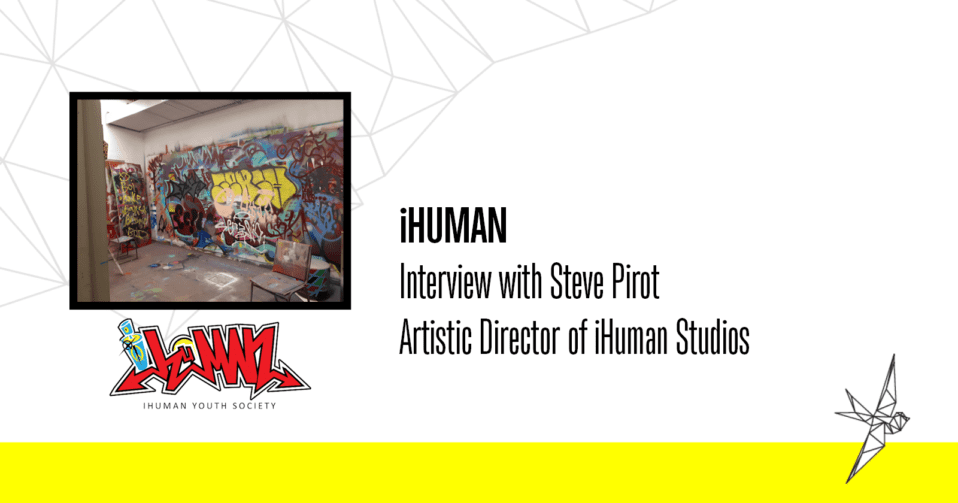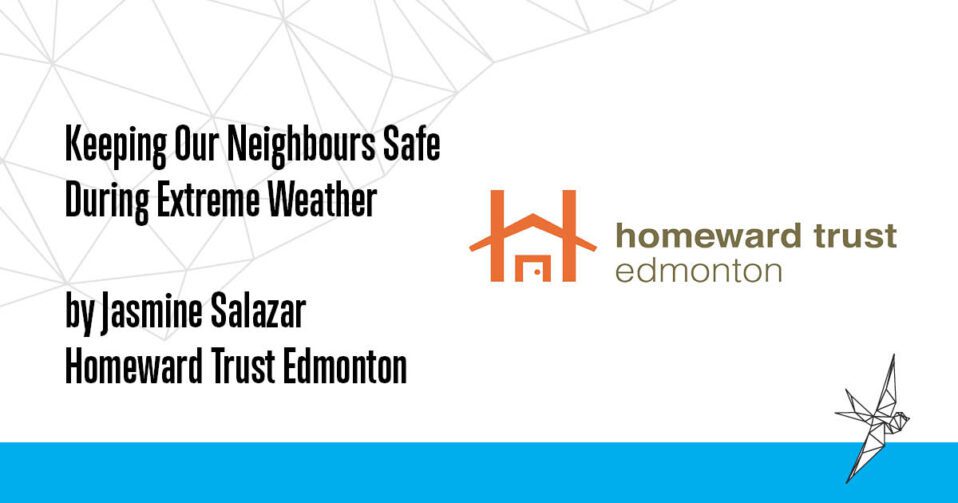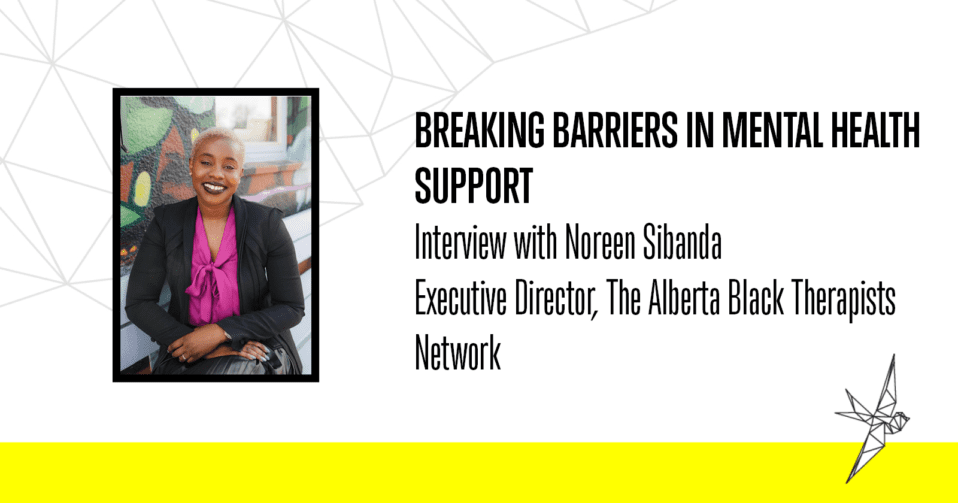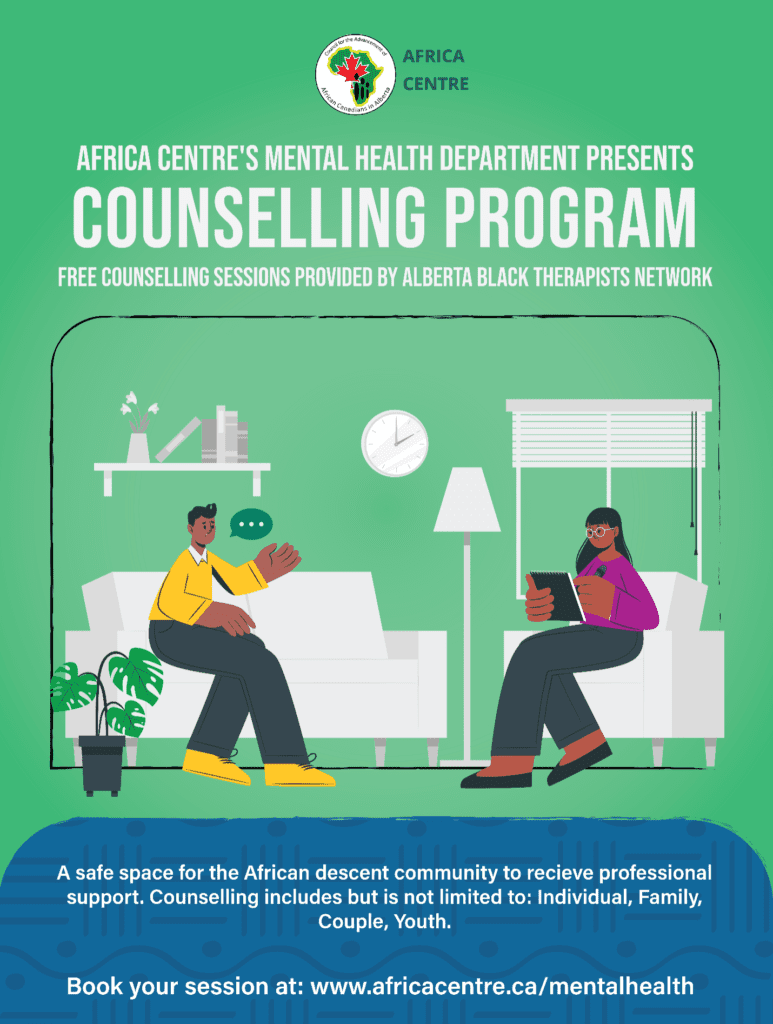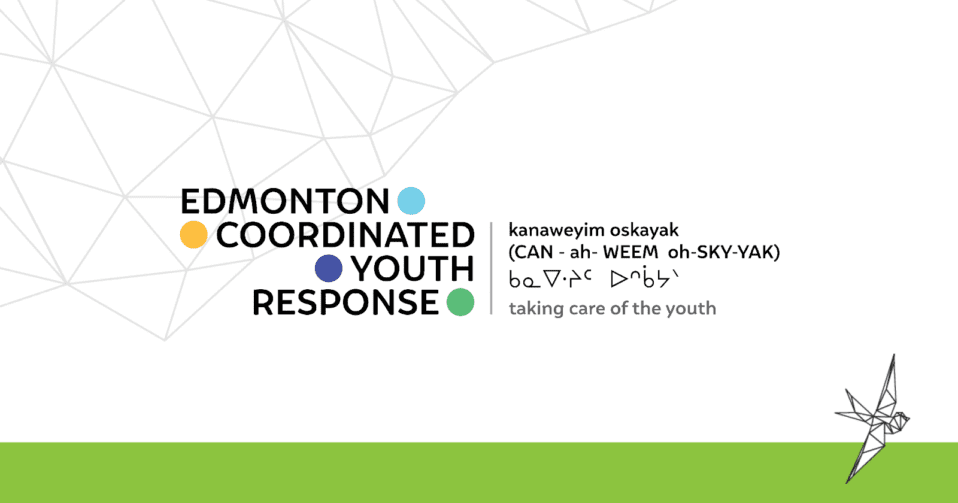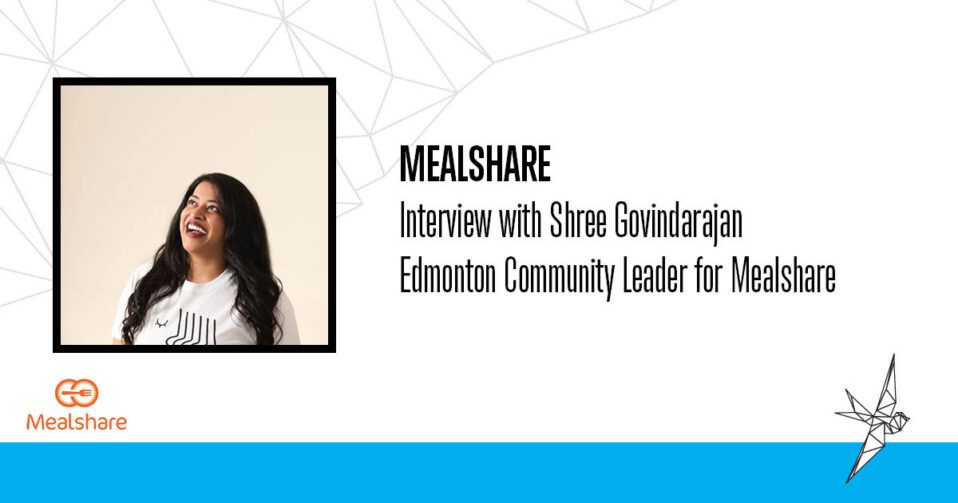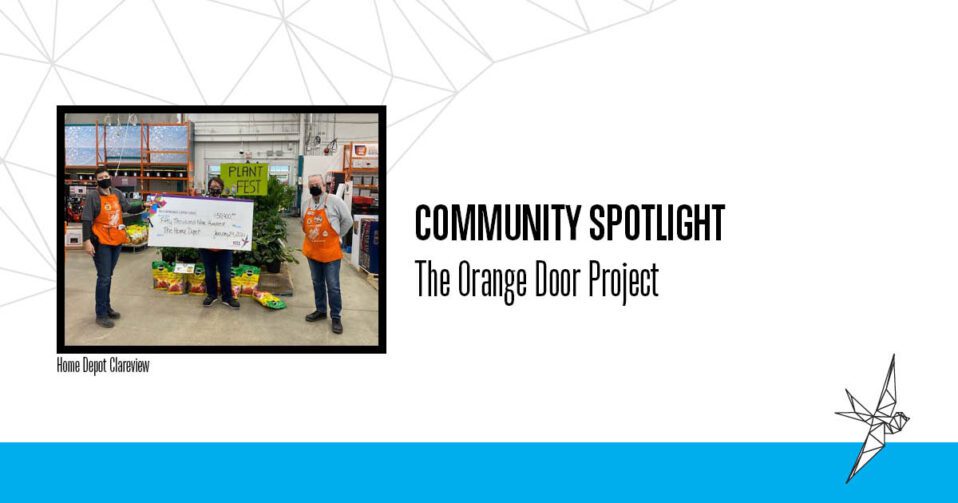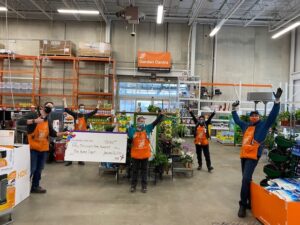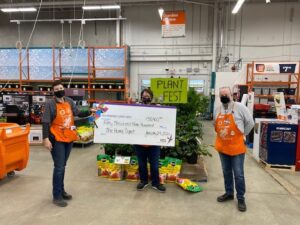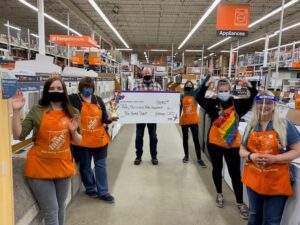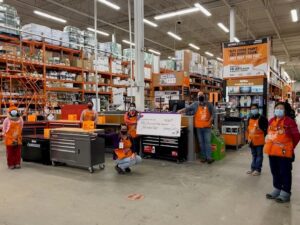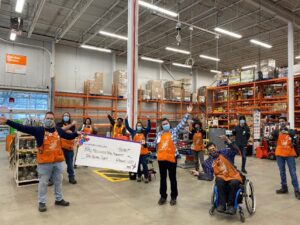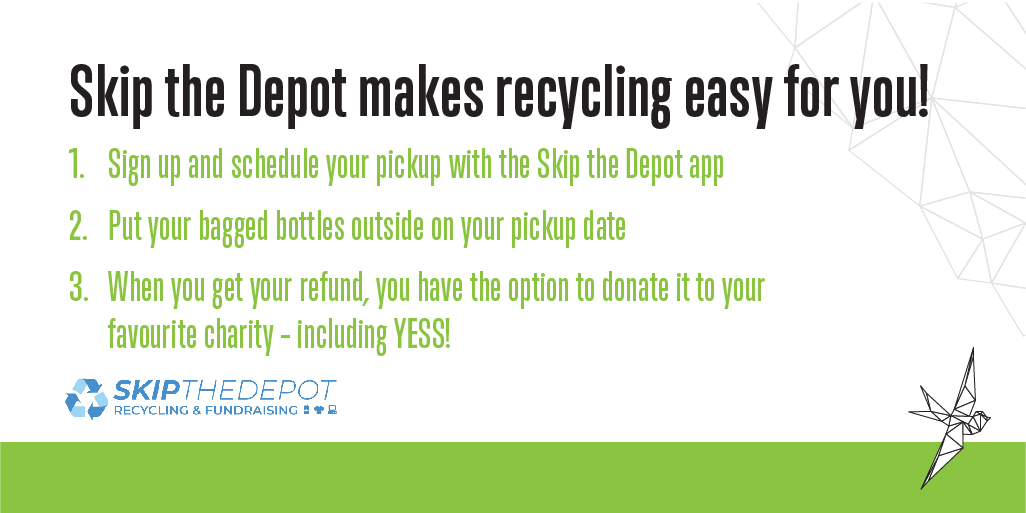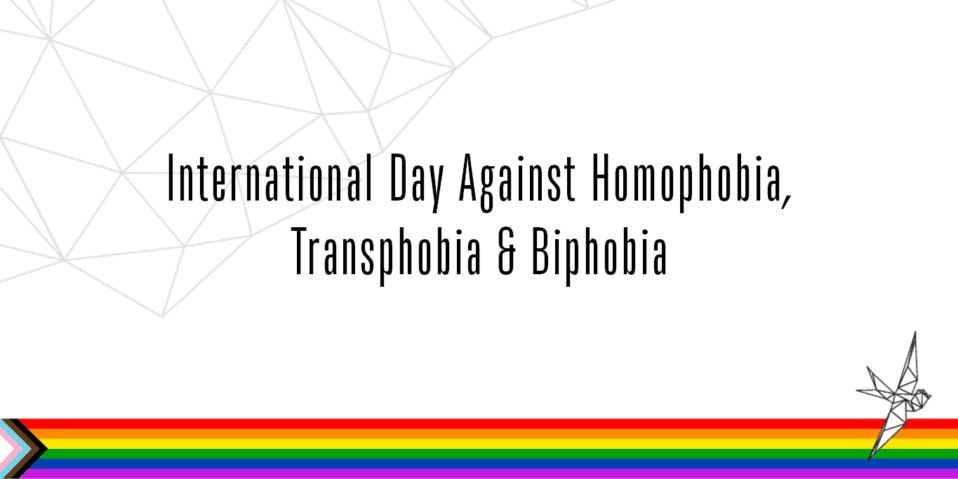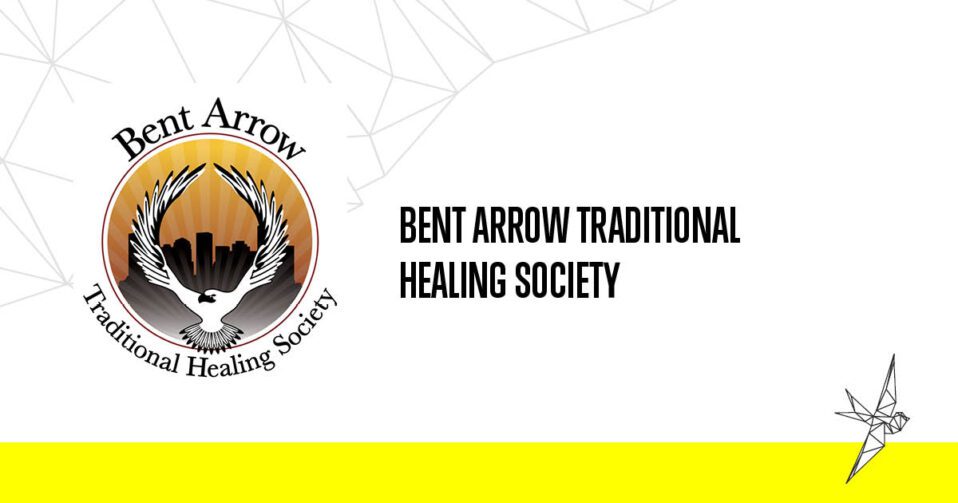This article was originally published in our March 2021 newsletter, themed around “art.”
iHuman Youth Society is a non-profit that believes all young people have gifts to share. In partnership with marginalized young people, they amplify their creative expression, address their needs, and support goals that privilege their voices. They support youth impacted by the negative outcomes associated with poverty, intergenerational trauma, addiction, mental health, abuse, racism, discrimination, and exploitation. Over 500 youth between 12-24 years of age access iHuman every year, 80% of whom self-identify as Indigenous. While iHuman provides free access to their services and programs, they are not a drop-in centre—youth actively engage in determining their individualized journey through iHuman’s resources and guide how they can be supported.
We talked to Steve Pirot, Artistic Director of iHuman Studios, about their mission to invite young artists to use acts of expression to transform their experiences of trauma into experiences of self-worth, purpose, identity, and belonging.
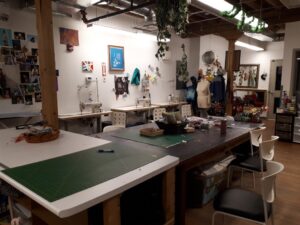 Tell us a bit about yourself and your work with iHuman.
Tell us a bit about yourself and your work with iHuman.
My name is Steve Pirot and my job title is Artistic Director of iHuman Studios; prior to working here I was an actor, writer, director, and producer of theatre and festivals. My function at iHuman is to provide direction and oversight to our studio system. I work for a large collective of artists who happen to be between the ages of 12 and 24. My job is to organize schedules, budgets, materials, staff, volunteers, spaces, and shows so that members of that collective have opportunities to express themselves. Sometimes that opportunity for expression will be personal, quiet, private; sometimes that opportunity will be public and effusive. Sometimes my job is to ensure a studio has a gentle vibe for an artist to work undisturbed, and sometimes my job is to bark into a microphone as iHuman’s hype-man.
In coming to iHuman from a mainstream artistic practice, I have had to recalibrate. My definition of art used to be informed by the idea that art was a commodity to be consumed; in that paradigm the idea of The Artist was necessarily elitist, because there needed to be an audience (the majority) that would consume the work created by the artist (the minority). In my practice at iHuman I have transformed to a perspective that art is not a product, but rather it is a process of expression. If you have the capacity to express, then you are an artist, and therefore all people are artists because it does not matter if your artistry is public, or even if it is ever viewed by another person.
 Why is art/creativity an important experience for youth to cultivate and have access to?
Why is art/creativity an important experience for youth to cultivate and have access to?
The essence of art is expression, and it is important for ALL people regardless of age to have the ability to express themselves. Cultivating the tools and habits of self-expression is essential for scores of reasons: to be sound in one’s mind, to build solid relationships, to foster a balanced society. It is especially important to cultivate these habits when younger because the skills one learns through the process of producing beats, or organizing chords, or composing a photograph, or beading earrings, or sewing a ribbon skirt… these are all transferable skills. In essence we are talking about pattern recognition, project planning and execution, communication. At iHuman we don’t look at art as being a product, but rather it is a tool to promote other outcomes.
What is something you wish the community knew about youth who are healing from trauma?
I wish that the community at large was better informed about our brains actually function. How do our brains behave when hijacked by the amygdala? Can we identify the symptoms of an individual in shock? How is an individual in the grip of a flight/fight response able to interact with the world? If the general public were better informed about how human brains work, then we could have a better foundation to have meaningful conversations about more complex issues like multi-generational trauma, addictions, etc.
On April 1, 2021, iHuman is hosting a drive-thru donation event! Drop off donations without leaving your car and enjoy live art and music from iHuman artists!
For more information visit ihuman.org or follow them on Facebook, Twitter, and Instagram

